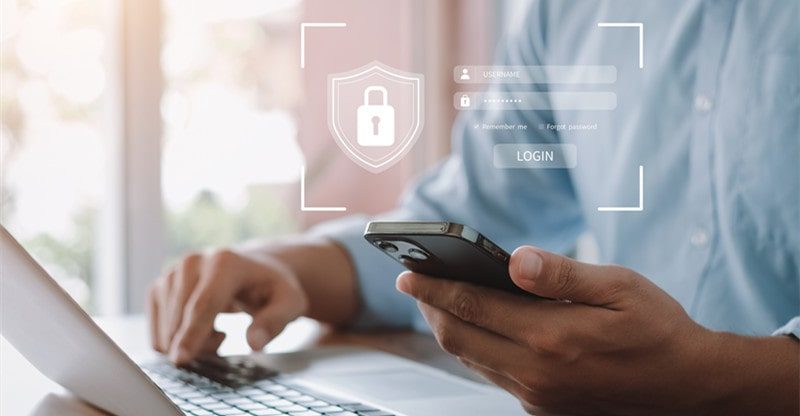Everything You Need To Know About Protecting Your Online Privacy
You can maintain security against unauthorised efforts by outside parties to access your data and safeguard your privacy from people you don’t want to share your information with by making a few straightforward modifications to your devices and accounts. It’s simple to start.
Here is a guide to the quick and easy modifications you may make to safeguard your online identity and personal data to avoid instances of potential cyberattack, phishing or fraud.
Protect your account
Data breaches and password leaks have affected organisations like Equifax, Facebook, Home Depot, Marriott, Target, Yahoo, and numerous others in the last ten years. If you have any online accounts, it’s likely that at least one of them has had data stolen by hackers. Are you interested in learning which of your accounts have been compromised? To compare your email address with hundreds of data breaches, type your email address into Have I Been Pwned?
Moreover, the most effective way for people to safeguard their privacy and security today is to utilise a password manager to create and remember unique, complicated passwords for every account. However, when in doubt, it is never a bad idea to contact your IT support for further advice.
Although installing password managers can be daunting, once you’ve done so, you can just continue using the Internet as normal. The password manager records your passwords as you log in to accounts and proposes updating weak or repeated passwords. You wind up with new passwords for the majority of your accounts after a few weeks.
Additionally, everyone should implement two-step authentication for their online accounts whenever it is feasible. This choice is offered by most banks and significant social media platforms. Two-step authentication involves two steps, as the name implies: inputting your password and a unique access code.
For instance, the first step is entering your username and password to log into Facebook. In the second stage, you receive a temporary code from Facebook through text message or, preferable, through an app like Google Authenticator, which you enter to log in.
Safeguard your online browsing
Websites and businesses are able to monitor everything you do online. Your location, browsing history, and other data are collected by every advertisement, social network button, and website. More than you might anticipate is revealed about you in the data collected.
You could think you’re clever for not revealing all of your religious convictions on Facebook or never tweeting about your health issues, but chances are excellent that the websites you frequently visit already have all the information marketers need to know about you. This is part of how targeted advertising continues to be among the most frightening inventions on the Internet.
A virtual private network (VPN) may be used by some, but not everyone will need one. A VPN is helpful if you frequently use public WiFi since it increases the security of your browsing when HTTPS isn’t available. It can also assist reduce tracking based on your IP address and offer some privacy from your Internet service provider.
However, as the VPN provider’s servers still handle all of your Internet traffic, by utilising one you are choose to put your trust in it rather than your ISP to not keep or sell your data. If you want a VPN, Wirecutter suggests IVPN, but first, make sure you understand the advantages and disadvantages.
Install an antivirus software
Viruses may not appear to be as widespread as they were ten years ago, but they still exist. On your computer, malicious software can do all sorts of damage, from obtrusive pop-up ads to covert bitcoin mining to personal data scanning. Installing antivirus software is worthwhile, especially on Windows PCs, if you’re prone to opening dangerous links or if you share a computer with others in your home.
Use Windows Defender, a programme that comes built into Windows 10 on your device. For the majority of users, Windows Defender provides more than enough security, making it the primary antivirus solution that Wirecutter advises. Most Mac users are comfortable with the security features built into macOS, especially if you only download apps from Apple’s App Store and limit your usage of reputable browser add-ons.
There is also a Mac version of Malwarebytes Premium if you do want an additional degree of security. On your phone, you should strictly avoid antivirus programmes and only download reputable apps from authorised marketplaces.
Conclusion
Links in emails and on social media should be avoided. Don’t share anything you wouldn’t mind finding out anyhow, and keep your accounts private. Be somewhat discreet with your primary email address and phone number. For online shopping and other activities, use a burner email account you don’t care about; if an account is compromised, it won’t be connected to a crucial personal account, like your bank’s.
When you have to sign up for a service you don’t care about, like discount cards at a grocery shop, don’t use your real name and number. You may avoid many privacy-invading activities if you develop a low-key, sceptical phobia about new apps and services.



